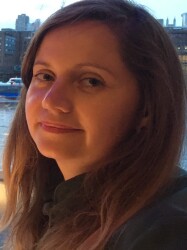BibTex format
@article{Soukup:2020:10.1002/cam4.3366,
author = {Soukup, T and Lamb, BW and Morbi, A and Shah, NJ and Bali, A and Asher, V and Gandamihardja, T and Giordano, P and Darzi, A and Green, JSA and Sevdalis, N},
doi = {10.1002/cam4.3366},
journal = {Cancer Medicine},
pages = {7083--7099},
title = {A multicentre cross-sectional observational study of cancer multidisciplinary teams: Analysis of team decision making},
url = {http://dx.doi.org/10.1002/cam4.3366},
volume = {9},
year = {2020}
}

